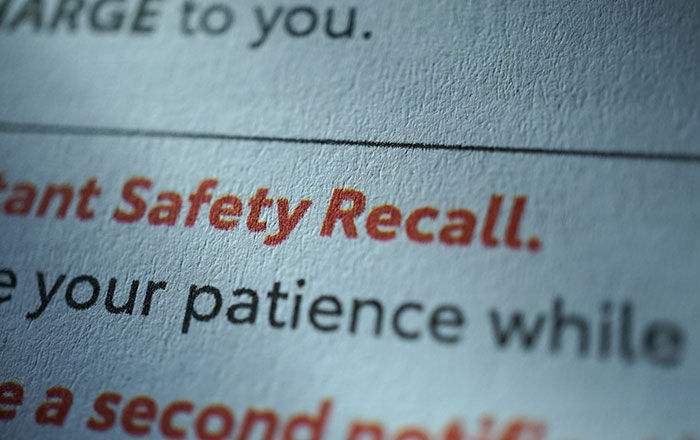
Losing a loved one due to someone else’s negligence or misconduct is devastating, and pursuing a wrongful death claim is a way for families to seek justice and financial compensation for their loss. But what exactly is a “fair” settlement in such cases? The answer varies widely, as each wrongful death case is unique and involves multiple factors that impact the final settlement amount. From the financial contributions of the deceased to the emotional toll on surviving family members, understanding these key components can help you navigate this complex process and ensure that your family is adequately compensated.
The sections below will explore the primary factors that determine what is considered fair compensation in wrongful death cases.
The Financial Contributions of the Deceased
One of the most significant components of a wrongful death settlement is the financial support the deceased would have provided to their family. This not only includes the deceased’s current income but also factors in future earning potential over the course of their expected lifetime. For example, if the deceased was in a stable, high-paying job with upward mobility, the family can claim compensation for future raises, bonuses, and career advancements that the deceased would likely have experienced.
Additionally, the settlement may include the value of other contributions the deceased made to the household, such as unpaid labor like childcare, home maintenance, or financial advice. These non-tangible contributions are often calculated based on the cost to hire outside help to replace those services. In some cases, fringe benefits like health insurance, retirement contributions, or stock options the deceased would have earned are also considered. Ultimately, this component seeks to compensate for both immediate and long-term financial losses to the family as a result of the wrongful death.
The Age and Health of the Deceased
The age and health of the deceased are critical in determining a fair settlement in a wrongful death lawsuit because they directly impact the deceased’s future earning potential and overall life expectancy. Younger individuals generally have more working years ahead of them, which translates to higher financial damages in the eyes of the court. For example, a young professional in their 30s with young children and a promising career would warrant a significantly higher settlement than someone in their 60s nearing retirement, as the younger individual had more potential years of income and support for their family.
The health of the deceased is factored in – if they were in good health and had a long life expectancy before the incident, the settlement will reflect the additional years they would have likely lived. Conversely, if the deceased had preexisting medical conditions that might have shortened their lifespan, the court could reduce the settlement amount. Expert medical testimony is often required to project the deceased’s expected lifespan and earning potential.
Medical and Funeral Expenses
Medical and funeral costs can place a heavy financial burden on the family, particularly in cases where extensive medical treatment was provided before death. The settlement for a wrongful death claim will typically cover the cost of all medical care the deceased received related to the incident. This includes hospital stays, surgeries, medication, emergency room treatment, and any other medical services rendered before the person’s passing. In cases where the deceased required long-term care or life-support measures before death, these costs can be extremely high and significantly increase the settlement amount.
Funeral and burial costs are also compensable, and they can include expenses for the funeral service, cremation or burial, and any other associated costs. South Carolina law allows families to seek compensation for these reasonable costs, ensuring they are not left financially overwhelmed by the medical bills or the expense of laying their loved one to rest.
Pain and Suffering of the Deceased
The pain and suffering experienced by the deceased prior to death is an essential part of a wrongful death settlement. This type of damage compensates for the physical and emotional distress the deceased may have endured between the time of injury and their passing. In South Carolina, proving pain and suffering typically requires evidence such as medical records, witness testimony, and expert analysis that can demonstrate the deceased’s awareness of their suffering or discomfort. For example, in cases involving prolonged illnesses or injuries, the settlement may include compensation for significant physical pain, anxiety, and distress suffered during the deceased’s final moments.
Courts may also consider the emotional suffering that the deceased endured, especially if they were aware of their impending death. While pain and suffering damages are more subjective than financial losses, they can still form a substantial part of the settlement, particularly in cases where the deceased’s final moments were prolonged and agonizing.
Loss of Companionship and Emotional Suffering
The emotional toll that the loss of a loved one takes on surviving family members is often one of the most challenging aspects to quantify in a wrongful death settlement. South Carolina law allows for compensation for the surviving spouse, children, and sometimes parents for the loss of companionship, affection, guidance, and emotional support the deceased provided. These damages, often referred to as “loss of consortium,” acknowledge the significant emotional void left behind. For a spouse, this may include the loss of emotional intimacy, partnership, and sexual relations. For children, it could mean the loss of parental guidance, support, and nurturing. Parents may also seek damages for the loss of their child’s companionship and future care.
Unlike financial damages, these non-economic losses are subjective, but courts take into account factors such as the closeness of the relationship, the level of emotional support provided, and the unique family dynamics when determining the appropriate settlement.
Punitive Damages
Punitive damages are designed to punish particularly egregious behavior and deter others from committing similar acts. In South Carolina, these damages are awarded in cases where the defendant’s actions go beyond negligence and involve reckless, malicious, or intentional misconduct. For example, punitive damages may be awarded if the wrongful death was caused by a drunk driver, a medical professional who knowingly ignored proper procedures, or a company that engaged in grossly negligent practices.
The primary purpose of punitive damages is not to compensate the family, but to punish the wrongdoer and set an example. In some cases, these damages can greatly increase the overall settlement amount, particularly when the court feels that the defendant’s actions were especially harmful or reckless. The court considers the severity of the misconduct and the financial standing of the defendant when determining the amount of punitive damages to award.
Insurance Coverage and Defendant’s Financial Situation
The financial standing of the defendant and their insurance coverage often play a critical role in determining the final settlement amount. In many wrongful death cases, the settlement is influenced by the limits of the defendant’s insurance policy. For instance, in a car accident case, the maximum payout may be limited by the at-fault driver’s auto insurance coverage.
If the defendant has a limited insurance policy or insufficient personal assets, it can be challenging to secure a settlement that fully compensates the family for their losses, even if the damages are substantial. However, if the defendant is a corporation or a wealthy individual with extensive assets, there may be more flexibility in negotiating a higher settlement. In some cases, families may pursue additional avenues for compensation, such as underinsured motorist coverage or other applicable insurance policies that can supplement the settlement.
South Carolina has a specific legal framework for handling wrongful death claims. One important aspect to understand is that wrongful death claims are filed on behalf of the deceased’s estate, typically by a personal representative or executor. This representative is responsible for pursuing the claim and negotiating a fair settlement on behalf of the deceased’s beneficiaries.
If you are pursuing a wrongful death claim, it’s crucial to work with experienced legal professionals who can help guide you through the legal process and are experienced in going up against insurance companies. They can ensure that all necessary evidence is gathered and that the full scope of damages, both economic and non-economic, is considered. With an experienced personal injury lawyer, you can increase the likelihood of obtaining maximum compensation in a fair settlement that reflects the profound loss your family has suffered and will hold the responsible party accountable for their negligent actions.
Contact McWhirter, Bellinger & Associates
The South Carolina personal injury attorneys at McWhirter, Bellinger & Associates have been representing clients in wrongful death cases for more than 40 years. We fight hard to make sure liable parties are brought to justice, and we approach every case with care and compassion. We understand that the untimely death of a loved one can be extremely traumatic and stressful, and we do our best to help alleviate the financial strain that comes along with saying goodbye to a loved one too soon.
Whether you’ve lost a loved one to a car accident, motorcycle accident, workplace accident, nursing home abuse, or any other fatal accident caused by another party’s wrongful actions, we would love to hear your story and see if we can help. McWhirter, Bellinger & Associates has seven offices across the Midlands of South Carolina and we offer 100% free case evaluations.
Give us a call today at 803-219-8626. It won’t cost you anything to see if we can help.®















